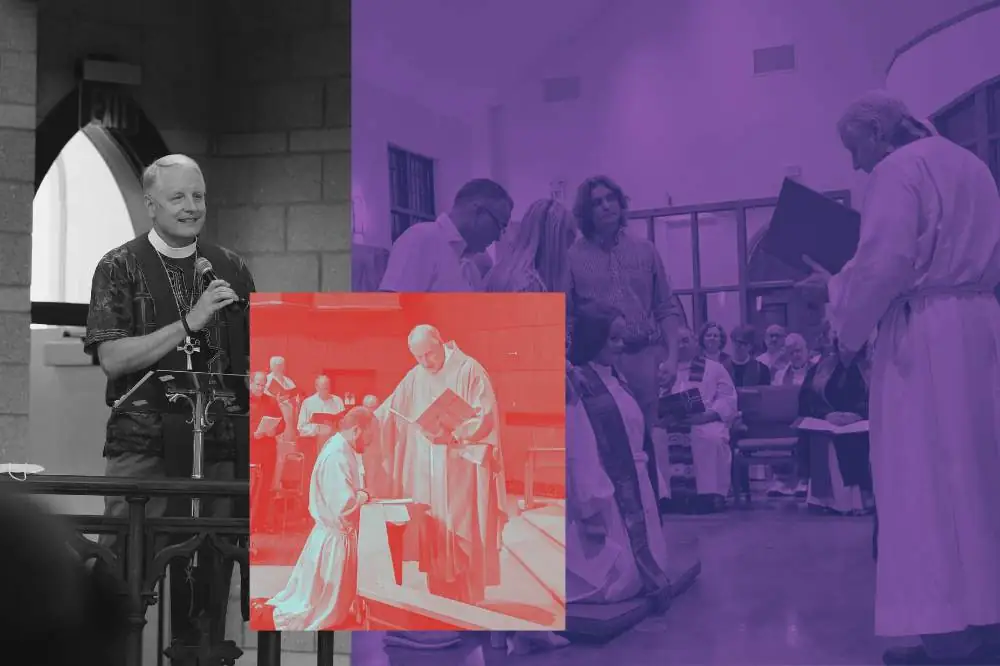I talk a lot. No, really. I know that you know that. I just want you to know that I know that, too. In fact, I spend so much time thinking about what I’m going to say to people in this or that sermon or this or that council or call committee meeting or this or that ELCA function or a newsletter or on social media that I sometimes feel like a machine just cranking things out, producing.
People disagree with and even get angry with me a good bit when I say something at odds with their perspective, but the thing people get most vocally upset about, I’m virtually certain, is when they want and expect me to say something about this or that and I don’t. Not enough affirmation. Not enough ‘I see you.’ Not enough standing up for the lost, the last, the least. “How dare you talk about your grandchildren on social media at a time like this? Aren’t you concerned enough about what’s going on in ________ to make a statement?” “The Episcopal bishop of New Hampshire said something about coronavirus, so why didn’t YOU?” So yeah. I’m not all that important, nor is what I think, in any ultimate sort of way, but it’s this office of the bishop that, for some, magnifies my words or my silence.
I wouldn’t dare compare myself to the great St. Peter except in one regard: I think often he talked too much, too. It got him in trouble. He had to ask Jesus to call him to come to him on the waves—and he sank. He insisted “No way!” when Jesus announced his impending death, and Jesus called him “Satan” for that. But my favorite rebuke of Peter’s incessant babbling is on the Mount of Transfiguration that ushered us into this season of Lent. There, when Moses and Elijah appear with Jesus and Jesus glows with a powerful presence, Peter can’t contain himself. He starts barking orders. “Build dwellings!” The text is so rich in describing it. It tells us, “While Peter was still talking, a voice from heaven….” Yep, God interrupts Peter. Essentially tells him to shut up. For once in your life, stop doing, stop talking. “This is my Son. LISTEN to him.”
During sabbatical, for the first extended time in a long time, I tried for six weeks to listen a lot more than I talked. I wasn’t writing sermons, talking to councils, staff, or rostered ministers. I tried to focus on that catch-all-yet-essential church word. Discernment. What is God calling me to do? Who is God calling me to be? For almost three days on a mountainside, I didn’t speak at all—to anyone. A counterintuitive exercise for someone of my makeup, office, and opinions. It was a most blessed thing. The thing about hushing, not focusing on production, even for a short time, is it gives us the opportunity to escape confusing the essential with the merely important.
What I came away with is quite simple, quite obvious, and yet the silence helped me move it away from a cognitive acknowledgement to a core conviction again. First, God has got this. All of this. With or without me or my voice or perspective. Second, God’s got me and those I love. Whatever the future holds, God holds that future, and God holds me, holds you, holds the Church. Not only do I not have to fix its brokenness; I can’t fix its brokenness. For a strong Myers-Briggs “P” type, I am both blessed and cursed with seeing many things at once, the big picture, all the moving parts at once. Strangely, sort of on a spiritual level, I had a revelation that I borrowed from the social justice world. “Think globally. Act locally.” Big pictures, in a world consumed with self and steeped in sin, don’t allow a lot of wiggle room for hope. But small things, even down to little random acts of kindness, matter immensely. Put another way, “Don’t fret about what you can’t do/change. Focus, with God’s help and in God’s power, on what you can.”
I’m back to talking too much again. A week back from sabbatical has already included one three-day stretch in which I preached five times in three days. That’s a lot even for me. But I’m also committed to making space for silence, for listening to God. With the Grace of intentionally shutting up even in small snippets and just paying attention and listening, one can be transformed, renewed. That’s my sabbatical and my Lenten journey. Blessings on yours.
Walking with you,





